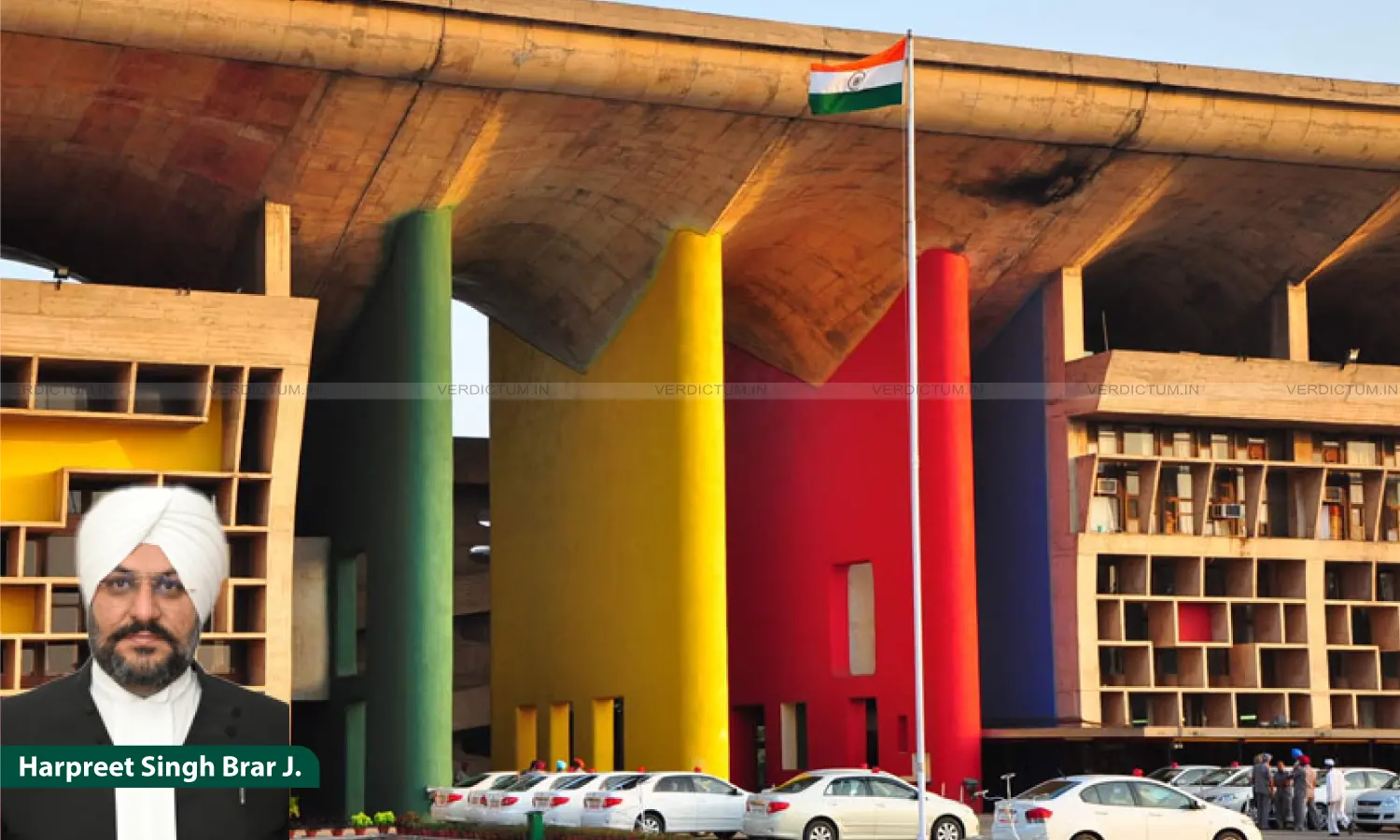Punjab & Haryana High Court Lays Down Parameters For Effective & Timely Implementation Of Court’s Decision In Service Matters
The High Court said true justice is realized only when the administration acts promptly and effectively to enforce the decisions of the courts.

Justice Harpreet Singh Brar, Punjab & Haryana High Court
The Punjab and Haryana High Court laid down seven parameters to ensure timely and effective implementation of the decisions of the Courts, including establishment of a Judgment Implementation Cell.
These parameters include accountability and responsibility, statutory time limits, monitoring mechanism, digital transparency tools, pre-litigation grievance redressal, training and awareness, and performance appraisals.
The Bench of Justice Harpreet Singh Brar observed, “Addressing administrative indifference in the execution of court orders calls for a blend of transparent practices, strict accountability,technology-based monitoring, and a shift in bureaucratic culture. The system must ensure that employees obtain relief without being compelled to engage in repetitive litigation, allowing the rule of law to triumph over bureaucratic inertia. By effectively enforcing these measures, not only will the justice delivery system be fortified, but employees’ trust in both governance and the judiciary will also be significantly restored.”
Advocate G.S. Gopera represented the Petitioner, while Advocate Piyush Khanna represented the Respondent.
Case Brief
Earlier, the Petitioner, along with one other person, filed a Writ Petition and in compliance with the order of the Court, services of the other person were regularized by Haryana Vidyut Prasaran Nigam Ltd. However, the claim of the petitioners for regularization was declined only on the ground of non-availability of sanctioned posts.
It was also contended that providing fair and stable employment is imperative for the Government Departments, as engaging workers on temporary/contract basis for extended periods exposes the organization to legal challenges and undermines employee morale.
Court’s Observation
The High Court noted that there has been a trend where long term employees are engaged on ad hoc basis, in spite of the perennial nature of the services rendered by them.
The Court said, “The State, being a constitutional employer, cannot be allowed to exploit its temporary employees under the garb of lack of sanctioned posts or inability of the employees to meet educational qualifications for regular posts, when they have been consistently serving its instrumentality for a significant time period. Such an approach would be violative of fundamental rights of the temporary employees enshrined in Article 14, 16 and 21 of the Constitution of India.”
The High Court also opined that temporary employees cannot be forced to bear the brunt of lack of financial resources when the State had no qualms about continuously taking advantage of the services rendered with regard to integral and recurring work of the concerned department.
Further, the Court emphasises that both the States of Punjab and Haryana tend to formulate policies in order to circumvent implementation of judgments rendered by the Constitutional Courts.
“More often than not, the claim for regularization is neither accepted nor denied and the applicant is kept in limbo unnecessarily. The extended ad-hocism of keeping daily wage workers or contractual employees on temporary rolls for decades while extracting regular work is not only unconstitutional but undermines equality and dignity. The State and its instrumentalities being model employers can’t perpetuate such exploitation and use excuses like financial constraints, non-availability of sanctioned posts and lack of qualification”, the High Court observed.
The Court said that the State as a model employer cannot pick and choose beneficiaries and is on a much higher podium and therefore it must sort out its perennial workers on a sanctioned foothold, create a budgetary allocation for lawful appointment, and implement directions of the Courts in letter and spirit.
While raising concerns regarding the inaction of the State, the Court observed, “The delivery of judgments alone does not guarantee the credibility of the justice system. True justice is realized only when the administration acts promptly and effectively to enforce the decisions of the courts.”
The Court raised concern over the habitual delay and outright denial of rightful service benefits to employees due to bureaucratic red-tape, administrative indifference, prolonged litigation, and routine passing of files.
Resultantly, the High Court laid down following parameters to ensure timely and effective implementation of the decisions of the Courts:
1. Accountability & Responsibility - Each order must clearly specify the officer responsible for its implementation. In cases of delay, personal accountability should be recorded in the concerned officer’s service record.
2. Statutory Time Limits - There should be mandatory timelines established for implementing service-related judgments, unless specifically stayed by a higher court. Failure to comply within this period must automatically trigger accountability mechanisms.
3. Monitoring Mechanism - Every department should establish a centralized Judgment Implementation Cell tasked with tracking compliance. These cells must submit quarterly reports to the department head for his appraisal and necessary action if required.
4. Digital Transparency Tools - The implementation status of court orders should be available on an online portal, providing transparency and allowing employees to monitor the progress of their cases. Further, there should be digitalization of service records to reduce procedural bottlenecks.
5. Pre-Litigation Grievance Redressal - Internal grievance mechanisms must be developed to allow employees to seek redressal before approaching the courts for matters already settled in law. This would reduce unnecessary litigation and lessen the burden on judicial bodies.
6. Training and Awareness - Regular capacity-building initiatives should be conducted to sensitize officers about the constitutional importance of implementing court orders, the rule of law, and the serious consequences of administrative indifference.
7. Performance Appraisals - Compliance with judicial directives should form a part of the measurable performance evaluation criteria in the annual appraisals of administrative officers.
Accordingly, the writ petition was allowed.
Cause Title: Hari Ram V. State of Haryana & Ors. (Neutral Citation:2025:PHHC:121886)
Appearance:
Petitioner: Advocate G.S. Gopera
Respondent: Advocates Piyush Khanna, Sanjeev Kaushik and Divyanshu Kaushik
Click here to read/download Order


